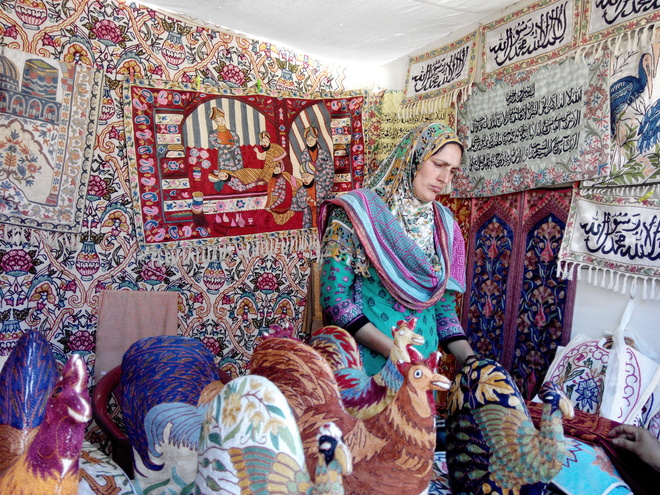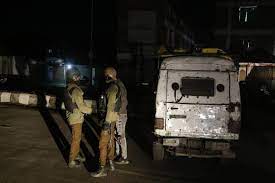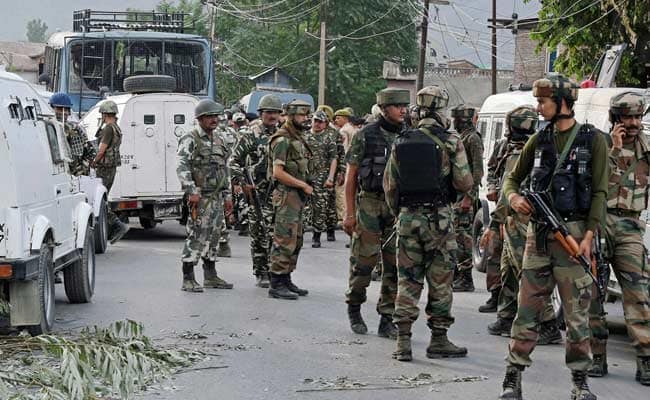Jameela Majid, 35, from the militant bastion village of Takiya Niloora, Pulwama, south Kashmir, feels empowered as her art is getting a lot of praise and attention at the 10th regional SARAS exhibition in the heart of Srinagar.
 After passing her middle school exams, Jameela followed her mother’s footsteps and started making handmade curtains and cushions covers.
After passing her middle school exams, Jameela followed her mother’s footsteps and started making handmade curtains and cushions covers.
“We had nothing as we suffered a lot economically due to the conflict. We were poor as for our family it was really difficult to afford two square meals a day, but today this art has changed my life. More than 500 young women work under me,” says Jameela while dealing with customers at the exhibition in Kashmir Haat.
The SARAS exhibition is an initiative of the Union Rural Development Ministry. There are stalls of self-help groups from 19 states as well as self-help groups from 22 districts of Jammu and Kashmir.
For entrepreneurs like Jameela, opportunities like displaying their products at exhibitions remain very limited.
“We don’t get a lot of opportunities, but we strongly feel the need to have more such chances so that we feel empowered and encouraged. I have seen that the women in my village have great skills and passion for this work and they can do wonders if provided with right opportunities,” says Jameela.
Most of the rural women like Jameela are into handicrafts to eke out a living.
The products made by women in villages like wall hangings, bed covers, curtains, carpets and shawls fetch millions of rupees in various European countries. But the irony here is that these women, who are the makers of marvelous craft, survive on peanuts. They are not being provided the proper platforms to showcase their talent.
Takiya Niloora village in south Kashmir’s Pulwama, is famous for designing and weaving of Kashmiri shawls. In almost every family, at least, two-three members are engaged in making Kashmiri ‘pashmina’, ‘kani’ and other shawls.
Women like Jameela have given a new hope of economic empowerment in these villages. They have also helped the men to get financially independent.“From the beginning, I am financially independent.
I knew my father cannot afford my education so after college, I did this work to earn my fee. It has given a new beginning to women in the far-off villages of south Kashmir,” says Jameela, who even helped her husband to set up the business.
Due to her keen interest in the art, everyone in her family has been able to earn from it. “My husband is a graduate, but was jobless. Out of my own earnings, I helped him to set up the business. I want all women should think innovatively. Kashmir needs women power to take it forward,” she said. Jameela is currently working on a wall hanging through which she is going to contest for the national handicrafts award.
“I want to show my art and skill through this piece,” she said.






